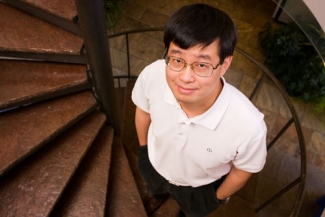
Quantum science and precision metrology — quantum matter probed with novel light source
Our research group explores the frontier of light-matter interactions. Precisely controlled lasers enable our communications with microscopically engineered quantum systems of atoms and molecules. By preparing matter in specific quantum states, and using probe light with the longest coherence time and precisely controlled waveform, we strive to make fundamental scientific discoveries and develop new enabling technologies.
The strongly integrated development of scientific vision and experimental tools has enabled us to advance important topics in precision measurement, quantum many-body physics, quantum metrology, ultrafast science, and quantum science in general. For example, we employ quantum gas of strontium atoms confined in optical lattices to achieve best performing atomic clocks and investigate novel quantum dynamics, combining quantum metrology and quantum simulation. We prepare molecules in quantum degenerate gases to engineer tunable Hamiltonians for correlated quantum phenomena. These quantum-state prepared molecules are also explored for test of fundamental physics and study of quantum chemistry. Stable lasers and optical frequency combs are extending precision spectroscopy and extreme nonlinear optics from mid infrared to extreme ultraviolet, providing novel probes for large quantum systems, trace detection for health and environment, and new spectroscopy opportunities for nuclear transitions.


 The Physics Frontiers Centers (PFC) program supports university-based centers and institutes where the collective efforts of a larger group of individuals can enable transformational advances in the most promising research areas. The program is designed to foster major breakthroughs at the intellectual frontiers of physics by providing needed resources such as combinations of talents, skills, disciplines, and/or specialized infrastructure, not usually available to individual investigators or small groups, in an environment in which the collective efforts of the larger group can be shown to be seminal to promoting significant progress in the science and the education of students. PFCs also include creative, substantive activities aimed at enhancing education, broadening participation of traditionally underrepresented groups, and outreach to the scientific community and general public.
The Physics Frontiers Centers (PFC) program supports university-based centers and institutes where the collective efforts of a larger group of individuals can enable transformational advances in the most promising research areas. The program is designed to foster major breakthroughs at the intellectual frontiers of physics by providing needed resources such as combinations of talents, skills, disciplines, and/or specialized infrastructure, not usually available to individual investigators or small groups, in an environment in which the collective efforts of the larger group can be shown to be seminal to promoting significant progress in the science and the education of students. PFCs also include creative, substantive activities aimed at enhancing education, broadening participation of traditionally underrepresented groups, and outreach to the scientific community and general public.